The right IT technicians are fundamental in keeping computer systems and networks running smoothly. They are the backbone that supports businesses by resolving technical issues that are critical to daily operations.
Skills required for an IT technician include a strong understanding of computer hardware and software, network maintenance, and troubleshooting. Additionally, soft skills such as communication and problem-solving are indispensable.
Candidates can write these abilities in their resumes, but you can’t verify them without on-the-job IT Technician skill tests.
In this post, we will explore 7 essential IT Technician skills, 6 secondary skills and how to assess them so you can make informed hiring decisions.
Table of contents
7 fundamental IT Technician skills and traits
The best skills for IT Technicians include Technical Troubleshooting, Network Management, Hardware Installation, Software Configuration, Security Protocols, Data Backup and Customer Support.
Let’s dive into the details by examining the 7 essential skills of a IT Technician.
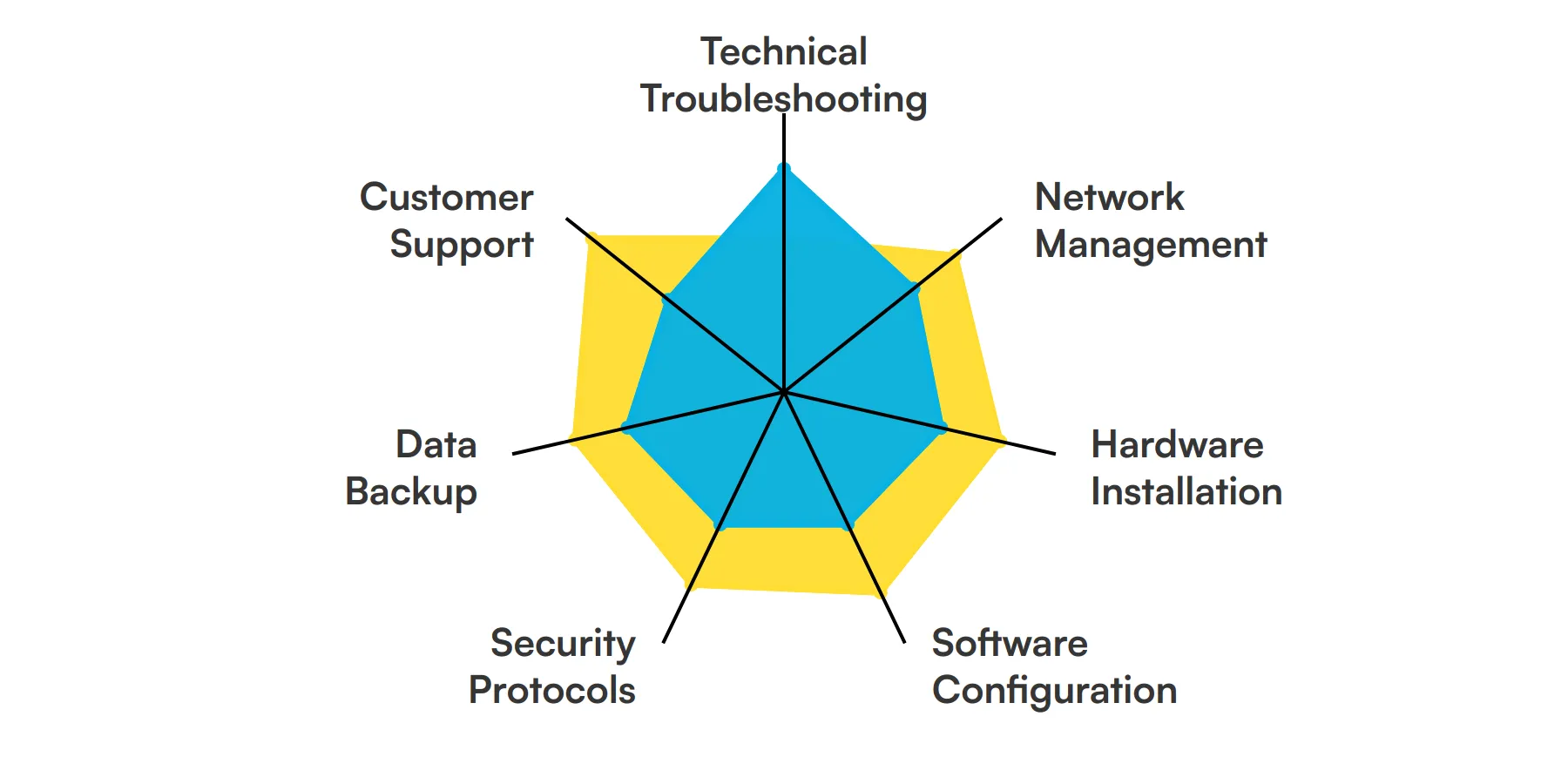
Technical Troubleshooting
Technical troubleshooting is a core skill for IT technicians, involving the diagnosis and resolution of hardware, software, and network issues. IT technicians use this skill to quickly identify the root cause of technical problems and implement solutions, ensuring minimal downtime and maintaining business continuity.
For more insights, check out our guide to writing a IT Technician Job Description.
Network Management
Managing and maintaining networks is crucial for IT technicians. This skill includes setting up, administering, and troubleshooting network resources. IT technicians ensure that all network infrastructures, such as routers and switches, operate smoothly to support organizational communication and data management.
Hardware Installation
Hardware installation involves setting up and configuring computer systems and devices. IT technicians use this skill to ensure that all hardware components are correctly installed and functioning efficiently, which is essential for the optimal performance of IT systems.
Software Configuration
Software configuration is key for IT technicians to manage and customize software applications according to user needs and company standards. This skill is used to install, update, and maintain software, which helps in enhancing system security and functionality.
Check out our guide for a comprehensive list of interview questions.
Security Protocols
Understanding and implementing security protocols is fundamental for IT technicians to protect systems from cyber threats. This skill involves setting up firewalls, antivirus software, and other security measures to safeguard sensitive data and prevent unauthorized access.
Data Backup
Data backup skills are essential for IT technicians to ensure that all critical company data is duplicated and stored securely. This preventive measure protects against data loss due to hardware failure, cyber-attacks, or other disasters, thereby maintaining business operations.
Customer Support
Customer support skills are vital for IT technicians as they often serve as the first point of contact for users experiencing technical issues. Effective communication and problem-solving skills help in resolving issues efficiently and improving user satisfaction.
For more insights, check out our guide to writing a Customer Service Representative Job Description.
6 secondary IT Technician skills and traits
The best skills for IT Technicians include Documentation, Project Management, Vendor Management, System Monitoring, Training Skills and Inventory Management.
Let’s dive into the details by examining the 6 secondary skills of a IT Technician.
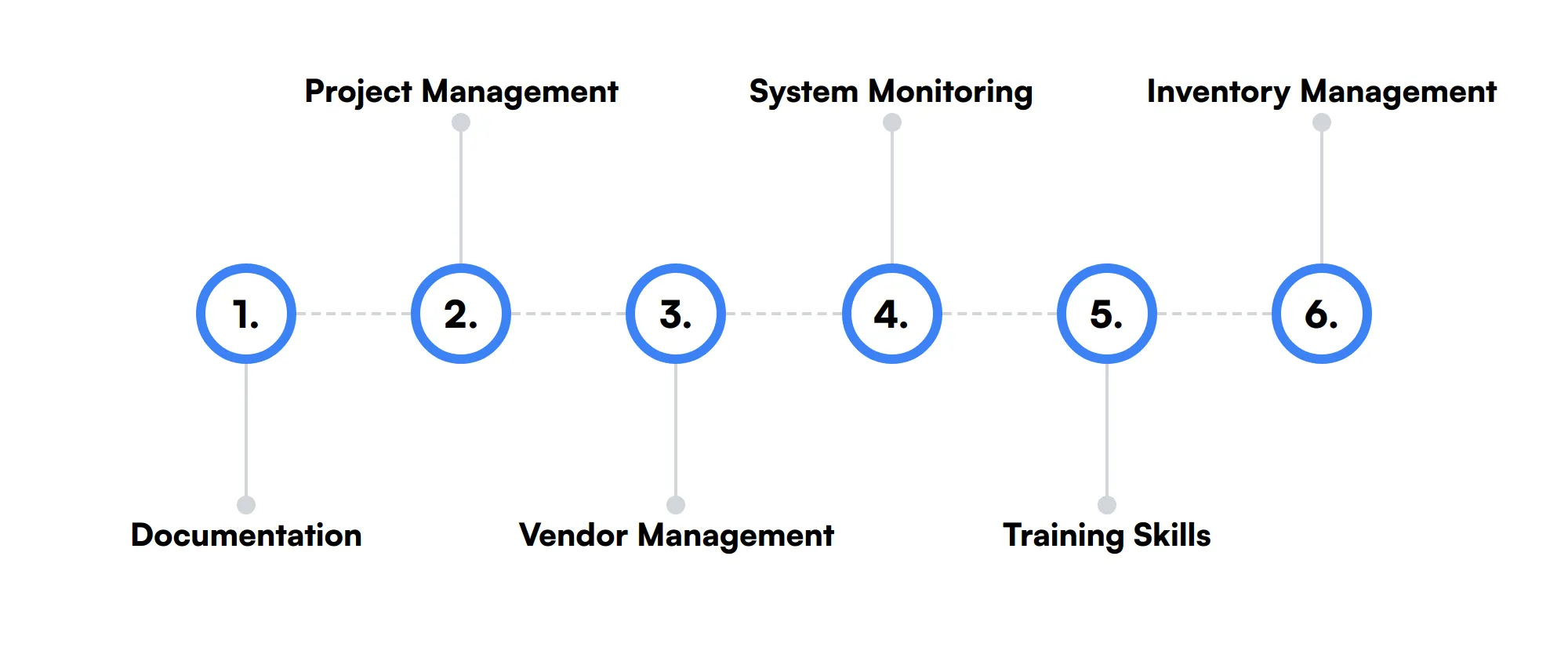
Documentation
Proper documentation by IT technicians helps in maintaining clear and accurate records of system configurations, changes, and processes. This practice supports effective management and quick resolution of future issues.
Project Management
Basic project management skills help IT technicians in planning, executing, and closing projects. This includes managing resources, timelines, and ensuring that IT projects align with business goals.
Vendor Management
IT technicians often interact with software and hardware vendors. Skills in vendor management ensure that negotiations and communications are handled professionally, securing beneficial agreements and timely support.
System Monitoring
Regular system monitoring allows IT technicians to track and analyze the performance of IT infrastructure. This proactive approach helps in identifying potential issues before they escalate, ensuring system reliability.
Training Skills
IT technicians frequently provide training to users on new systems and software. Effective training skills ensure that users are competent in using technology, which reduces errors and enhances productivity.
Inventory Management
Managing inventory, including tracking and ordering IT supplies and equipment, is a useful skill for IT technicians. This ensures that there are no delays or shortages in resources, which could impact business operations.
How to assess IT Technician skills and traits
Assessing the skills and traits of an IT Technician can be a challenging task. It's not just about what they know, but how they apply their knowledge in real-world scenarios. From technical troubleshooting to customer support, an IT Technician's role is multifaceted and requires a diverse skill set.
Traditional resumes and certifications can give you an idea of a candidate's background, but they don't provide a complete picture of their practical abilities. Skills-based assessments are a more reliable way to evaluate a candidate's competencies. For instance, Adaface assessments can help you identify the right talent by reducing screening time by 85%.
When assessing IT Technicians, it's important to consider their proficiency in key areas such as network management, hardware installation, software configuration, and security protocols. Additionally, their ability to handle data backup and provide excellent customer support are equally important traits to evaluate.
Let’s look at how to assess IT Technician skills with these 4 talent assessments.
Technical Support Test
Our Technical Support Test evaluates a candidate's comprehensive understanding of IT infrastructure, including operating systems, networking, and IT service protocols. It also tests their ability to troubleshoot hardware and software issues effectively.
The test assesses candidates on their knowledge of database management, scripting languages like Python and Bash, and cybersecurity principles. It includes situational judgement questions to evaluate problem-solving and customer service skills in technical support scenarios.
Candidates who perform well on this test demonstrate strong capabilities in incident reporting, data backup procedures, and managing ITIL processes. They are also proficient in handling customer queries and technical issues with clarity and effectiveness.
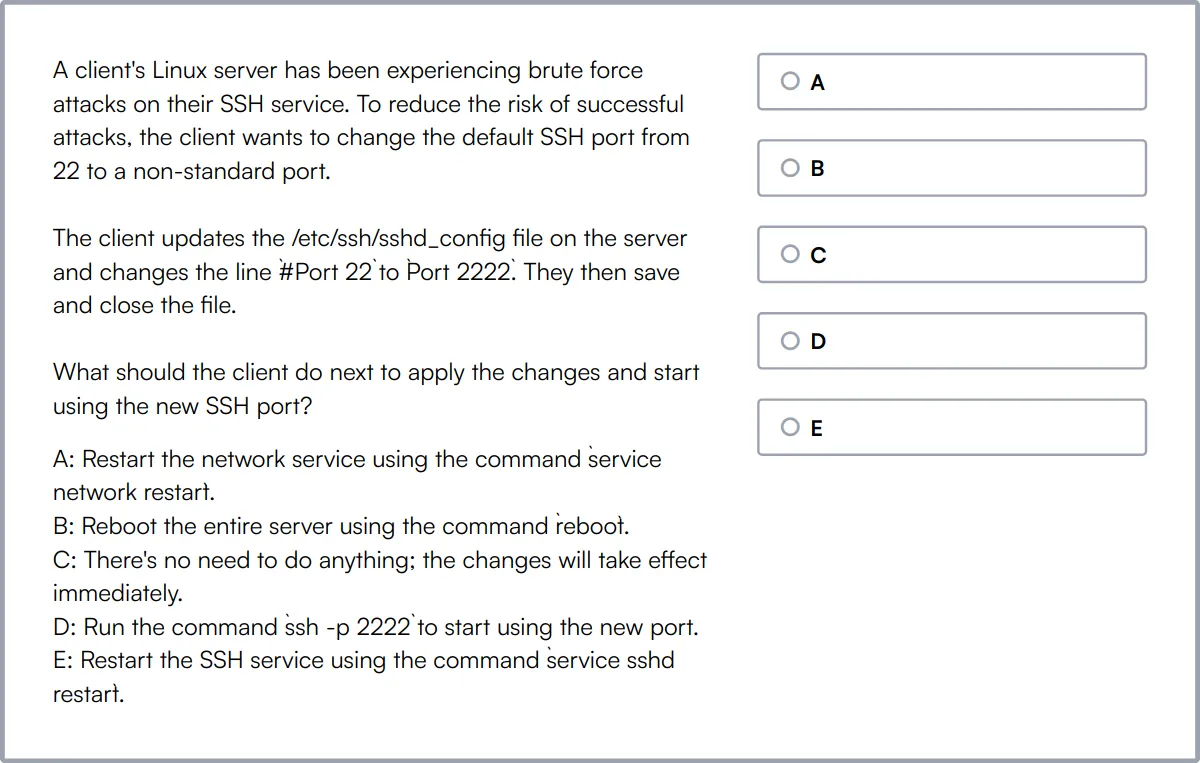
Network Engineer Online Test
Our Network Engineer Online Test measures a candidate's expertise in computer networking, focusing on network protocols, security, and troubleshooting. It evaluates their ability to design and manage network infrastructures.
This test covers key areas such as routing and switching, network design, and performance optimization. It challenges candidates to apply their knowledge in practical scenarios involving TCP/IP, LAN/WAN, and wireless networking.
Successful candidates will demonstrate a deep understanding of network architecture and the ability to efficiently diagnose and resolve complex network issues. They are also skilled in implementing network security measures and optimizing network performance.
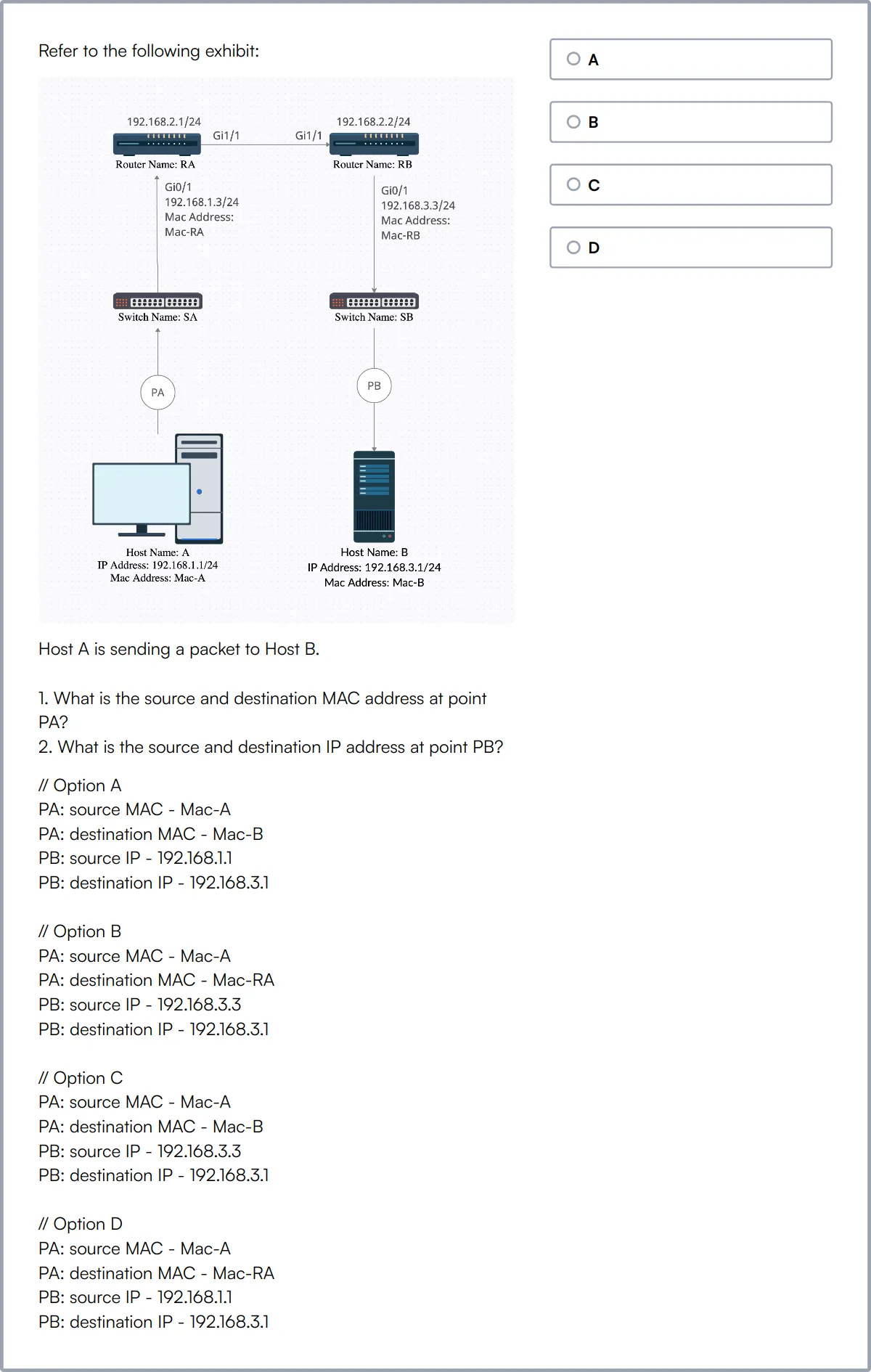
Windows System Administration Online Test
Our Windows System Administration Online Test assesses candidates on their proficiency in managing Windows environments, focusing on Active Directory and group policy management.
The test evaluates knowledge in Windows Server administration, networking, and PowerShell scripting. It includes scenario-based questions that test the candidate's ability to manage network services and system monitoring.
High-scoring candidates are adept at server virtualization and disaster recovery, showcasing their ability to maintain and secure Windows-based enterprise environments.
Customer Service Test
Our Customer Service Test assesses a candidate's ability to handle customer interactions with empathy and professionalism. It tests problem-solving skills and the ability to resolve conflicts effectively.
This test evaluates candidates on their communication skills, attention to detail, and knowledge of customer service principles. It includes situational judgement questions to gauge how candidates deal with real-life customer service scenarios.
Successful candidates show a customer-centric approach and the ability to manage time efficiently while providing thoughtful and detailed responses to customer inquiries.
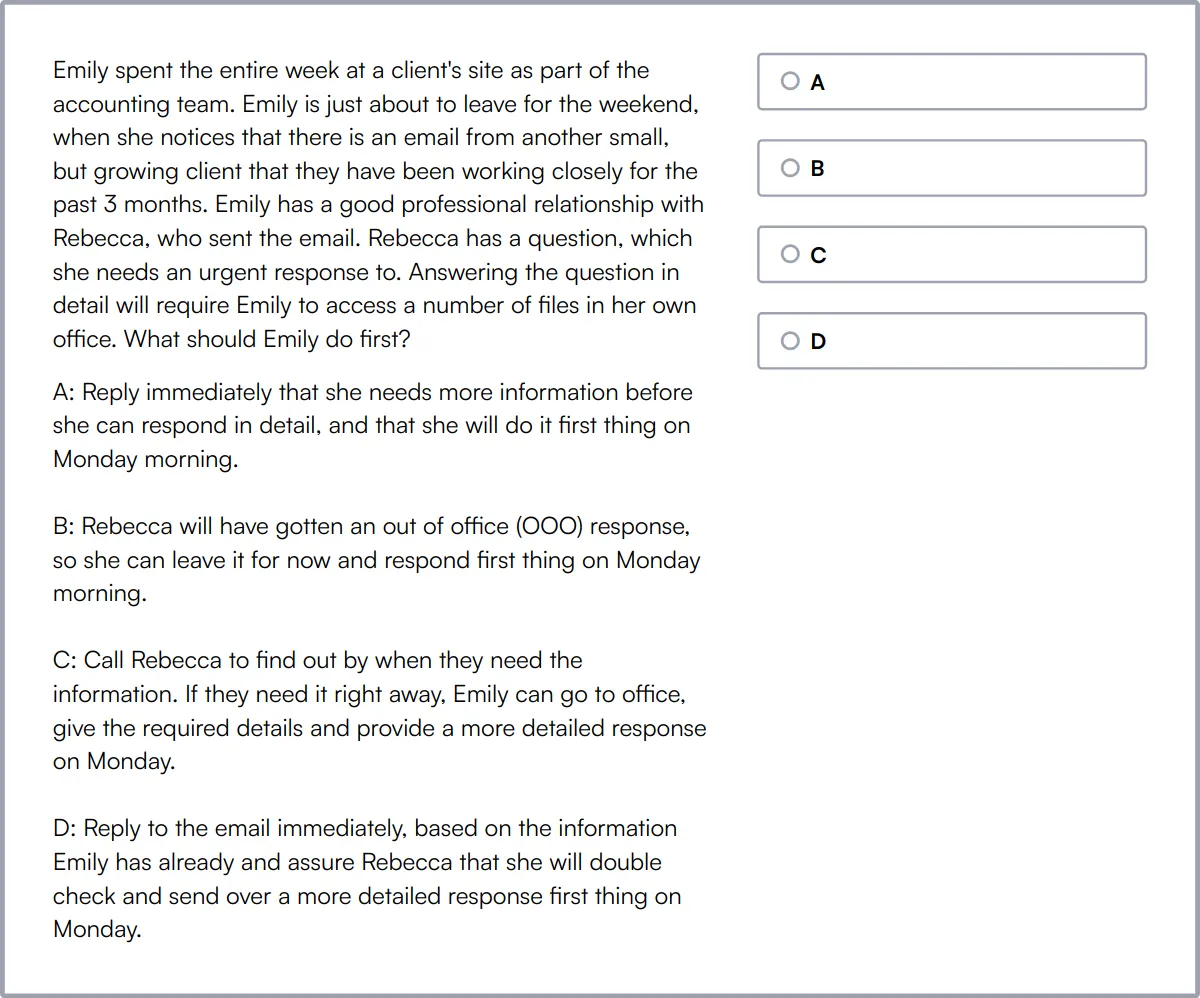
Summary: The 7 key IT Technician skills and how to test for them
| IT Technician skill | How to assess them |
|---|---|
| 1. Technical Troubleshooting | Evaluate ability to diagnose and resolve system malfunctions quickly. |
| 2. Network Management | Assess knowledge in managing, deploying, and maintaining network systems. |
| 3. Hardware Installation | Test competence in setting up and configuring physical computer components. |
| 4. Software Configuration | Check proficiency in installing and setting up software applications. |
| 5. Security Protocols | Review understanding of implementing and managing security measures. |
| 6. Data Backup | Verify methods used for securing and restoring data effectively. |
| 7. Customer Support | Observe skills in handling and resolving customer inquiries and issues. |
Linux Shell Online Test
IT Technician skills FAQs
What technical troubleshooting skills should IT technicians possess?
IT technicians should be adept at diagnosing and resolving hardware, software, and network issues. Skills include understanding system errors, repairing or replacing components, and using diagnostic tools to identify problems.
How important is network management for IT technicians?
Network management is key for IT technicians as it involves maintaining the company's internal network infrastructure, including routers, switches, and firewalls. This ensures stable and secure network operations.
What should recruiters look for in hardware installation capabilities?
Recruiters should assess candidates on their ability to physically set up computer hardware, configure devices for optimal performance, and ensure proper connectivity.
What are the best practices for software configuration in IT?
Effective software configuration involves installing, updating, and maintaining software applications to meet organizational needs. Technicians should demonstrate proficiency in configuring software to work with existing systems.
Why are security protocols critical in the IT technician role?
Security protocols are important as they protect organizational data from unauthorized access and cyber threats. IT technicians must be familiar with implementing and managing security measures like firewalls and encryption.
How can IT technicians effectively manage data backups?
Effective data backup management involves regularly scheduling and performing backups, verifying data integrity, and ensuring backups are secure and easily recoverable in case of data loss.
What customer support skills are necessary for IT technicians?
IT technicians need strong communication skills to assist users with technical problems, provide clear instructions, and ensure customer satisfaction with the solutions provided.
How does project management benefit IT technicians?
Project management skills help IT technicians plan, execute, and finalize projects within the constraints of time, budget, and resources, ensuring project goals are met and align with business objectives.

40 min skill tests.
No trick questions.
Accurate shortlisting.
We make it easy for you to find the best candidates in your pipeline with a 40 min skills test.
Try for freeRelated posts
Free resources



